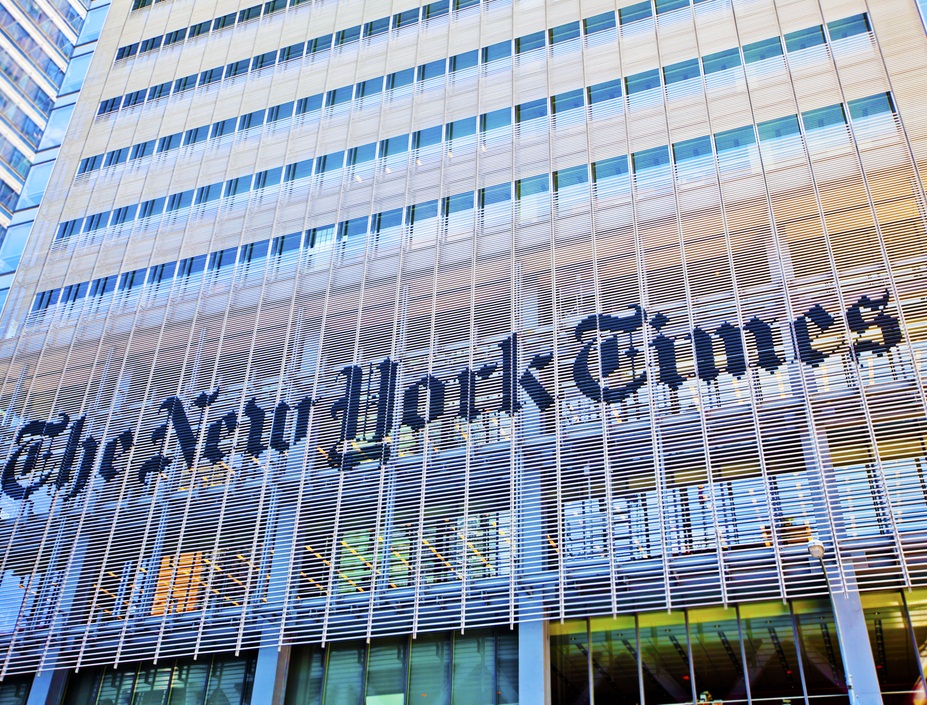

The New York Times (NYT) has sued both OpenAI and Microsoft, alleging copyright infringement of its news content.
The NYT said it is the first major US media organisation to sue OpenAI, the creator of the popular AI chatbot ChatGPT.
The lawsuit, filed in the federal district court in Manhattan, alleges that millions of NYT articles were used to train chatbots that now compete with the news organisation.
The lawsuit comes as content owners including publishers, artists, authors etc have begun legal action against firms offering popular AI tools for alleged copyright infringement.
The NYT lawsuit does not include an exact monetary demand, but it is seeking a lot of money as compensation.
The lawsuit states that the defendants should be held responsible for “billions of dollars in statutory and actual damages” related to the “unlawful copying and use of The Times’s uniquely valuable works.”
The lawsuit also calls for the companies to destroy any chatbot models and training data that use copyrighted material from The New York Times.
“Defendants’ unlawful use of The Times’s work to create artificial intelligence products that compete with it threatens The Times’s ability to provide that service,” the lawsuit alleges. “Defendants’ generative artificial intelligence (“GenAI”) tools rely on large-language models (“LLMs”) that were built by copying and using millions of The Times’s copyrighted news articles, in-depth investigations, opinion pieces, reviews, how-to guides, and more.”
“While Defendants engaged in widescale copying from many sources, they gave Times content particular emphasis when building their LLMs – revealing a preference that recognises the value of those works,” the lawsuit claims. “Through Microsoft’s Bing Chat (recently rebranded as “Copilot”) and OpenAI’s ChatGPT, Defendants seek to free-ride on The Times’s massive investment in its journalism by using it to build substitutive products without permission or payment.”
The NYT lawsuit cited several instances in which OpenAI and Microsoft chatbots gave users near-verbatim excerpts of its articles.
The NYT in its lawsuit revealed that it had approached Microsoft and OpenAI in April this year to raise concerns about the use of its intellectual property and explore “an amicable resolution,” possibly involving a commercial agreement and “technological guardrails” around generative AI products.
However the talks had not produced a resolution.
An OpenAI spokeswoman, Lindsey Held, was quoted by the NYT as saying in a statement that the company had been “moving forward constructively” in conversations with The Times and that it was “surprised and disappointed” by the lawsuit.
“We respect the rights of content creators and owners and are committed to working with them to ensure they benefit from A.I. technology and new revenue models,” Held reportedly said. “We’re hopeful that we will find a mutually beneficial way to work together, as we are doing with many other publishers.”
Microsoft however reportedly declined to comment on the case.
OpenAI and Microsoft have previously said that using copyrighted works to train AI products amounts to “fair use” – a legal doctrine governing the unlicensed use of copyrighted material.
And it should be noted that the lawsuit from the New York Times is not the first time that legal action has been levelled at the firms behind popular AI systems.
Multiple book authors including David Baldacci, Jonathan Franzen, John Grisham and Scott Turow, have sued OpenAI, alleging that AI systems might have co-opted tens of thousands of their books.
In July, the comedian Sarah Silverman and other authors sued OpenAI and Meta Platforms.
Photo library giant Getty Image has sued an AI company that generates images based on written prompts, alleging the platform relies on unauthorised use of Getty’s copyrighted visual materials.
In July a Washington, DC judge ruled that artwork created by an artificial intelligence (AI) without human input cannot be copyrighted under US law.
Some news organisations however have reached agreements with AI firms.
In July the Associated Press struck a licensing deal with OpenAI, and then in this month German publishing giant Axel Springer also reached an agreement for an undisclosed amount.
Russian court finds Google liable for YouTube video allegedly disclosing personal data on Russian casualties…
Latest CATL sodium-ion batteries have energy density and range closer to lithium-ion units using cheap…
Amazon's AWS cloud unit pauses some leasing talks around new data centres, analysts say, in…
US trade regulator says Uber signed users up for Uber One plan without their knowledge,…
Appeals court ruling reopens case that had been dismissed, finding Shopify must face trial under…
US Justice Department lawyers argue Google must face wide-ranging remedies including selling off Chrome, with…